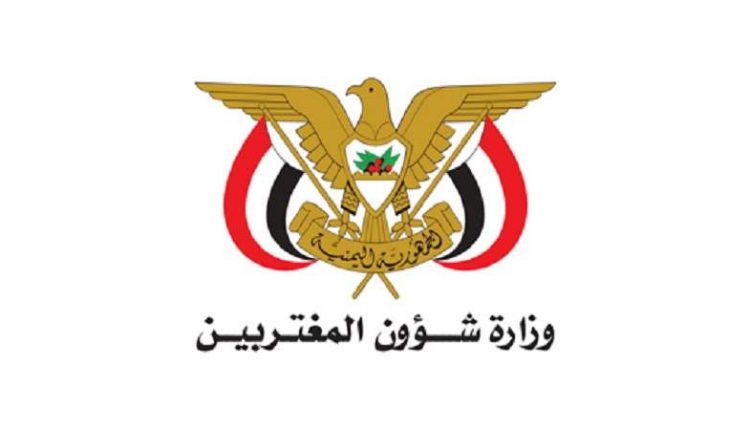Yemen’s Expatriate Affairs Condemns Citizens’ Executing by Saudi Regime
The Ministry of Expatriate Affairs condemned the crime of the Saudi regime, represented by the execution of two Yemeni citizens.
In a statement issued, Monday, the ministry confirmed that the crime of executing Yemeni citizens, which was committed by the Saudi regime, is illegal and came after an unfair trial in which the victims were not able to defend themselves.
The statement indicated that the Saudi regime refrained from giving information to the relatives of the victims about the execution, which is considered torture and crime under international human rights law and international humanitarian law.
It called on the United Nations and International organizations for human rights to take a free stance rejecting the crimes of the Saudi regime and condemning this crime.
On Sunday, the Ministry of Human Rights condemned the flagrant crime of the Saudi regime, represented by the execution of two citizens.
The Ministry of Human Rights indicated that this crime is added to the record of mass and individual executions committed by the Saudi regime against the people of Yemen.
It called on all organizations, peoples of the world and free countries to take a free stance rejecting the crimes of the Saudi regime and condemning this crime. The Ministry holds the international community, Security and Human Rights Councils, and the world responsible for the continued crimes and violations of the Saudi regime.
Recently, Saudi Arabia has executed 81 prisoners in a single day over “terror-related offenses,” in the largest mass execution carried out by the highly-conservative Arab kingdom in recent memory.
In an announcement on Saturday, the state-run Saudi Press Agency said 81 inmates, including seven Yemenis and a Syrian, were executed, alleging that the suspects had been convicted of a variety of crimes, including killings and belonging to militant groups.
The mass execution in Saudi Arabia has drawn a strong wave of condemnation from various Islamic and Saudi opposition groups, which say most of those executed were jailed only for exercising their right to free expression of opinion.

